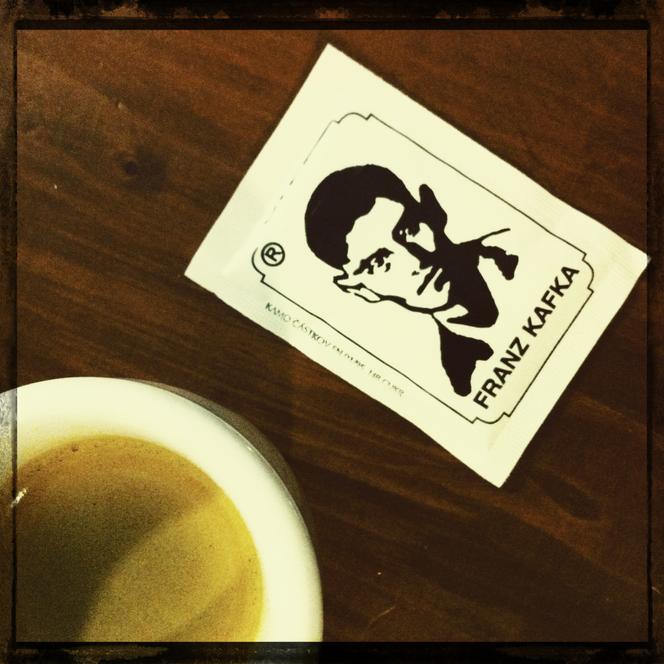


It was 2016. In other words, the last century. As I was talking to him about his adaptation of Kafka's The Castle, made 19 years earlier, the filmmaker Michael Haneke told me that he might never find a producer who wanted to make such a film, which, incidentally, would no longer interest young people.
Despite my high regard for him, I think Haneke was quite wrong. One hundred years after his death, Franz Kafka (1883-1924) has never been more alive. In fact, the Prague novelist and short-story writer has become an icon for the so-called Z generation of 12-25–year-olds. The proliferation of Instagram and TikTok accounts where teenagers stage their identification with the writer, as with his characters trapped in a hostile world, is staggering. Drawing of an insect looking at its phone entitled: Me, absorbing the absurdities of everyday life; a 16th birthday cake bearing the effigy of Kafka; a young girl showing off her best profile, captioned with a definitive "in terms of standard, Kafka is my bare minimum and I won't date a man until he's Kafka". There's something poignant about today's youth exhuming from the Kafkaesque burrow words that enable them to confront the stridencies of everyday life.
In fact, their entire psychic cartography can be found here: the hollowing out of oneself to burrow ever further in, the implacable orders one gives oneself (The Diary), the disappearance of intimacy, permanent surveillance (The Castle), the injustices one feels victimized by (The Trial), the triumph of the mediocre (Josephine the Singer), the vanity theater of social media (A Hunger Artist), the terror of having to get out of bed every morning (The Burrow), the fear of not being understood and of finally being loved (Letters to Felice, Letters to Milena), the hatred of parents who, no matter how pathetic their puppets, continue to stand in the way of our desires (Letter to his Father), the faults we feel guilty about, the exact origin of which may never become apparent to us except at the moment of our death (In the Penal Colony), the shame of having a body to the point of thinking that the best thing would be to be exterminated like a bedbug (The Metamorphosis).
If you want to understand young people, read Kafka, all of Kafka. Let's reread these lines from The Diary, taken from a letter to Felice Bauer: "But finally, I come from my parents, I'm bound to them and my sisters by blood, these are things I don't feel in everyday life and because I'm necessarily misguided in my particular goals, but I respect them, deep down, more than I think I do. The sight of my parents' marital bed, of sheets that have been used, of nightgowns carefully laid out, can exasperate me to the point of nausea, can turn my insides inside out; it's as if I hadn't been born once and for all, as if I were always emerging from this stifled life to come into the world in this stifling room, as if I had to constantly seek confirmation of my life there, as if I were, if not completely, at least in part, always linked to these odious things." Has there ever been a more piercing description of adolescent disarray?
You have 35.45% of this article left to read. The rest is for subscribers only.
